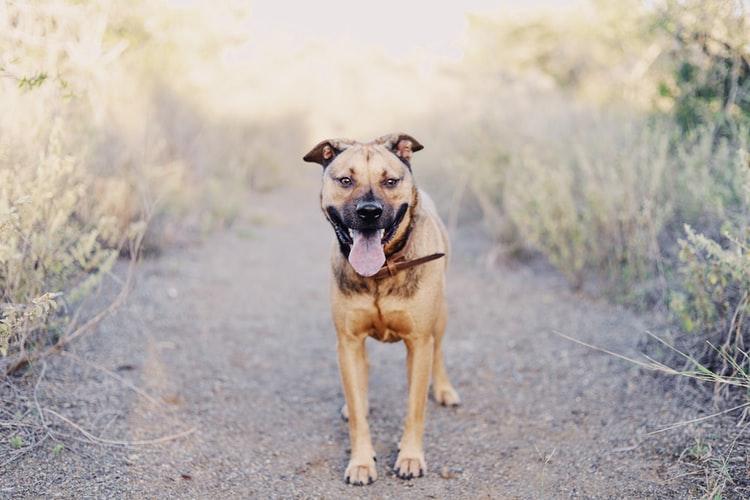Summary: So, you’ve heard of resveratrol and you’re wondering “is resveratrol safe for dogs?”. In this blog, we learn what resveratrol is, what’s touted benefits are, what it’s used for, and whether it is safe to give to a canine… If you already give your dog supplements to support their health and wellbeing or are […]
- Home/
- Dog/
- Health & Wellness/
- Resveratrol For Dogs: What Are The Benefits?
Resveratrol For Dogs: What Are The Benefits?

Summary: So, you’ve heard of resveratrol and you’re wondering “is resveratrol safe for dogs?”. In this blog, we learn what resveratrol is, what’s touted benefits are, what it’s used for, and whether it is safe to give to a canine…
If you already give your dog supplements to support their health and wellbeing or are curious about starting, you may have heard about resveratrol because of its touted positive impact on a dog’s health and growing popularity…
What Is Resveratrol?
You may associate resveratrol with the healthful part of red wine. That’s because it’s found there, in the skin of grapes and a variety of other plants. Plants produce this compound to help protect themselves from water loss as well as bacteria or fungi – it acts similarly to an antioxidant. And yes, you may be thinking “But dogs can’t eat grapes!”, and you’re right – they’re incredibly toxic to dogs. But, resveratrol does not contain the same toxic elements as grapes do. So, is resveratrol safe for dogs…? Indeed it is.
How Can Resveratrol Benefit Your Dog?
In a study published in the Veterinary Immunology and Immunopathology journal, researchers assessed what happened when resveratrol was introduced to a dog’s bloodstream and measured it against what happened to their immune system functioning whilst resveratrol was present. The resveratrol seemed to support a healthy immune response! However, it also appeared to cause a decrease in the activity of the immune cells that are specifically there to fight off disease and kill unfriendly bacteria (neutrophils).
There was not enough conclusive evidence to decide either way if resveratrol was positively or negatively affecting the dog’s immune systems. However, it’s thought that it may help support healthy blood pressure and cholesterol.

The findings in these studies are relatively promising but it’s still not clear if it’s a good idea to administer to dogs on a long-term basis. And, despite many studies’ optimism, there’s still no conclusive evidence that it’s the new go-to doggy supplement that some websites and sources claim or suggest it to be.
If you do want to up the resveratrol in your dog’s diet, try sprinkling a few blueberries or peanuts onto their food as both are safe for dogs to consume in small amounts. They both contain naturally-present resveratrol as well as other free-radical-reducing antioxidants, and essential vitamins and minerals.
Our PetLab Co. advice would be, at present, to look for a more well-rounded, supplement that targets overall health and aims to support a healthy immune system, like a dog-specific Multivitamin. Until resveratrol has more backing and hard evidence behind it, there are many other options to explore when it comes to promoting your dog’s health. Ensuring they have a healthy, balanced diet that includes fiber, and the correct amount of exercise each day, alongside attending regular veterinary checkups, a supplement like resveratrol shouldn’t be a vital inclusion on their daily routine… Unless your vet advises it, of course. A multivitamin packed with essential, vital vitamins and minerals will help put your mind at ease if you’re worried your dog isn’t getting enough immunity support.
If you feel your dog may benefit from any supplement, it’s always worth chatting it through with your vet first.
Sources
Author Stott, Darlene “The Benefits Of Resveratrol For Dogs” Wag Walking, Sep 21. 2021 https://wagwalking.com/wellness/the-benefits-of-resveratrol-for-dogs
Author Hurst-Missouri, Natahn “Resveratrol Does Strange Things To A Dog’s Immune System” Futurity, 24 Aug. 2015 https://www.futurity.org/resveratrol-dogs-immune-systems-987892/
Author Woode, Rowena A. and Axiak-Bechtel, Sandra M. and Tsurata, Kaoru and Amorim, Juliana R. and Zhang, Yan and DeClue, Amy E. “Resveratrol decreases oxidative burst capacity and alters stimulated leukocyte cytokine production in vitro” Science Direct, Feb 15. 2015 https://www.sciencedirect.com/science/article/abs/pii/S0165242714003067?via=ihub
 S
S



